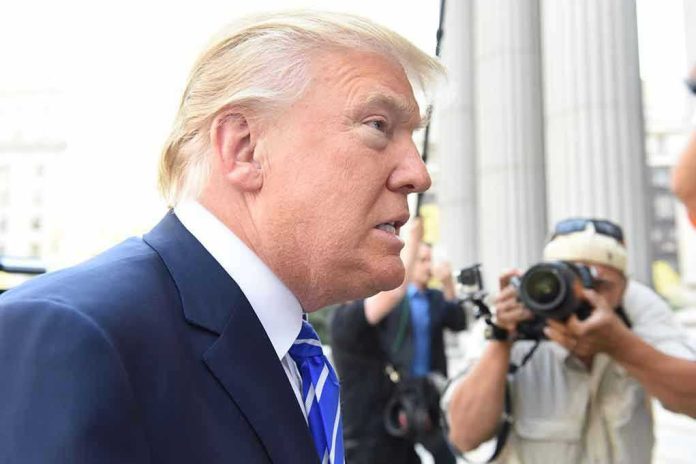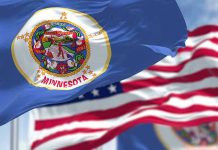
A federal judge has ordered President Trump to fully fund the Supplemental Nutrition Assistance Program after the administration openly defied a court order, setting off a constitutional crisis and leaving millions of Americans at risk of hunger.
Story Snapshot
- Judge McConnell ordered full SNAP funding for November 2025, but the Trump administration only partially complied.
- President Trump publicly stated he would not fund SNAP until the government reopened, directly defying the court’s order.
- The judge rebuked the administration, emphasizing the harm to millions, especially children, and demanded immediate compliance.
- This marks a rare and significant confrontation between the executive and judicial branches over social welfare policy.
Unprecedented Judicial Rebuke
U.S. District Judge John J. McConnell Jr. issued a clear order: the Trump administration must fully fund SNAP for November 2025. The administration responded with only partial payments, citing the need to reserve funds for child nutrition programs. McConnell’s written order reiterated the mandate, but the deadline passed without full payment. The judge’s subsequent rebuke highlighted the harm to millions of Americans, especially children, and demanded immediate compliance. This open defiance of a federal court order by a sitting president is unprecedented in modern American history.
The judge’s actions underscore the gravity of the situation. McConnell emphasized that the administration’s refusal to comply with the court’s order posed an immediate risk to food security for 42 million Americans, including 16 million children. The humanitarian crisis is real and immediate, with families facing the prospect of going hungry during a government shutdown. The judge’s rebuke was not just a legal directive but a moral imperative, reminding the administration of its duty to protect the most vulnerable.
Humanitarian Crisis and Legal Implications
The stakes are high. SNAP, formerly known as food stamps, is a federal program providing nutrition assistance to low-income individuals and families. During a government shutdown, the program’s funding is typically threatened, but full defiance of a court order is unprecedented. The Trump administration’s decision to withhold full funding has immediate and severe consequences. Millions of Americans, including children, elderly, and disabled individuals, rely on SNAP for basic needs. The strain on food banks and local charities is increasing, and administrative confusion at the state level is mounting.
The legal implications are equally significant. The administration’s defiance of a federal court order raises questions about the rule of law and executive accountability. Legal experts note that this is a constitutional crisis, with the executive branch openly challenging the judiciary. The precedent set by this confrontation could have far-reaching effects on future executive-judicial relations and the administration of federal aid programs. The separation of powers is at stake, and the public’s trust in government is eroding.
Political and Social Ramifications
The political ramifications are profound. The Trump administration frames the issue as a matter of budgetary necessity and political leverage, but plaintiffs and advocates argue that the administration’s actions are unlawful and morally indefensible. The humanitarian imperative of SNAP cannot be overstated. The burden on food banks and families is catastrophic, and the social unrest and heightened political polarization are palpable. The economic hardship for millions, increased food insecurity, and the potential for legal precedent regarding executive compliance with judicial orders are all at play.
The broader industry and sector effects are also significant. Food retailers and suppliers dependent on SNAP transactions may see reduced sales, and the nonprofit sector faces increased demand for emergency food aid. The impact on low-income families, children, elderly, and disabled individuals is immediate and severe. The administration’s actions have far-reaching consequences, and the public’s trust in government is at risk.













